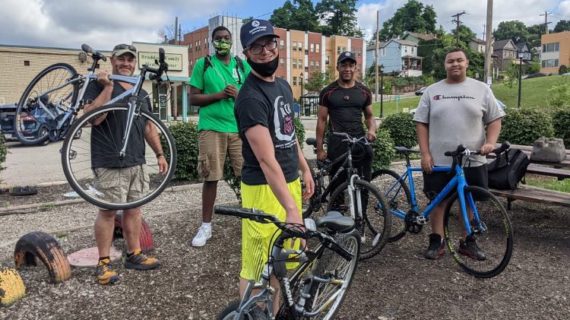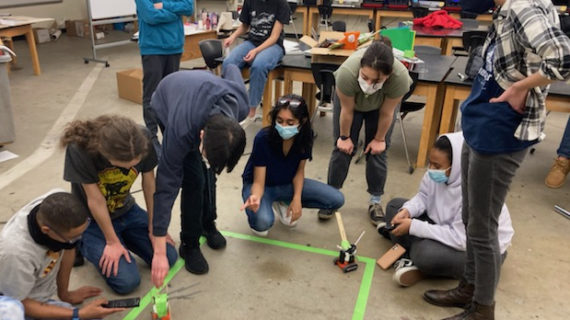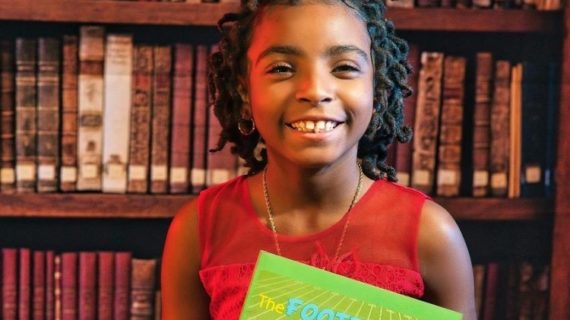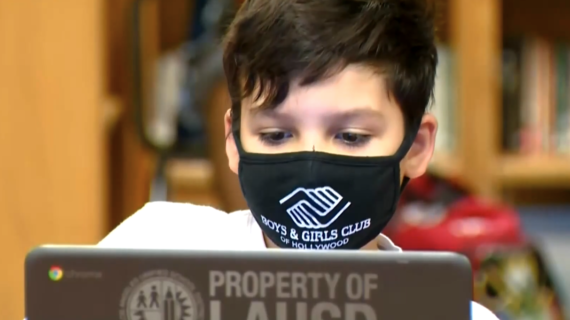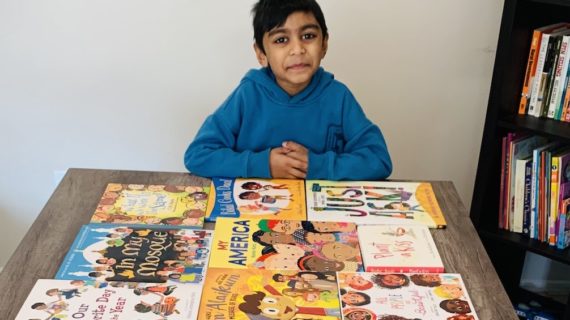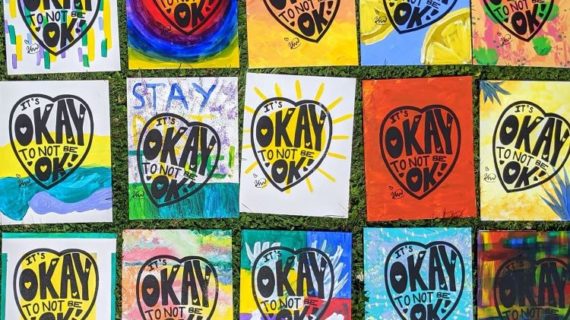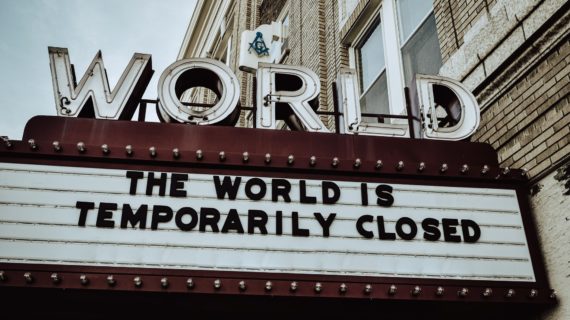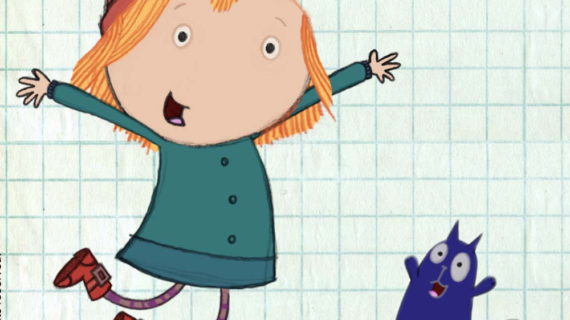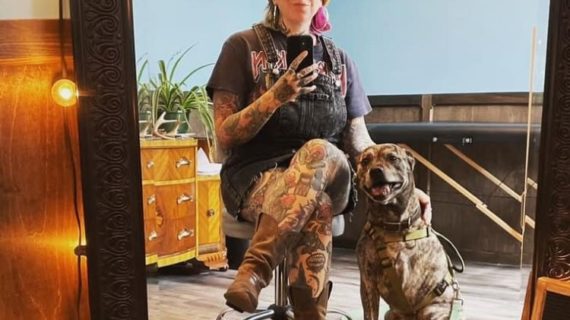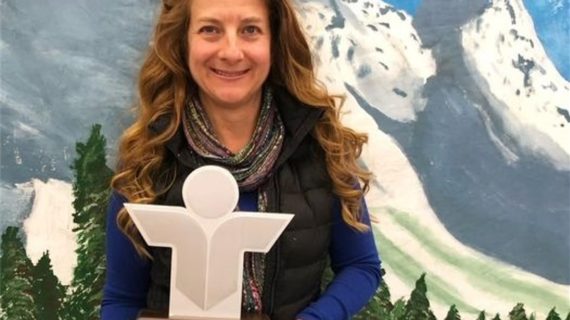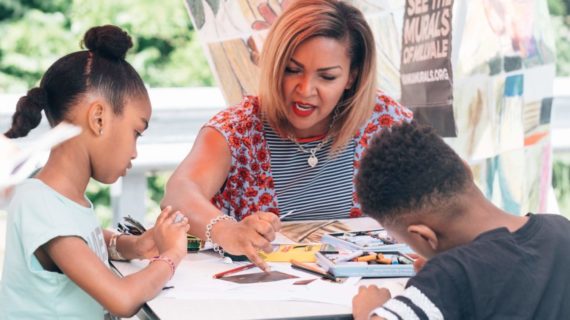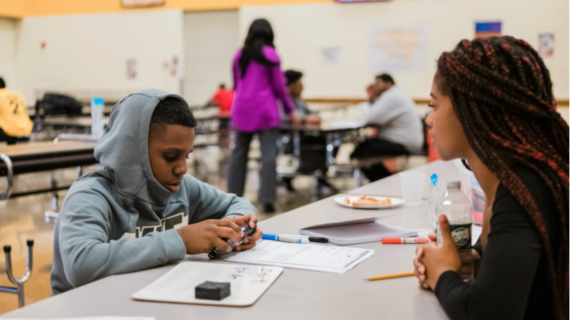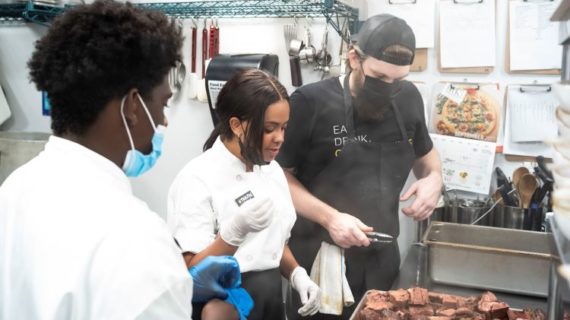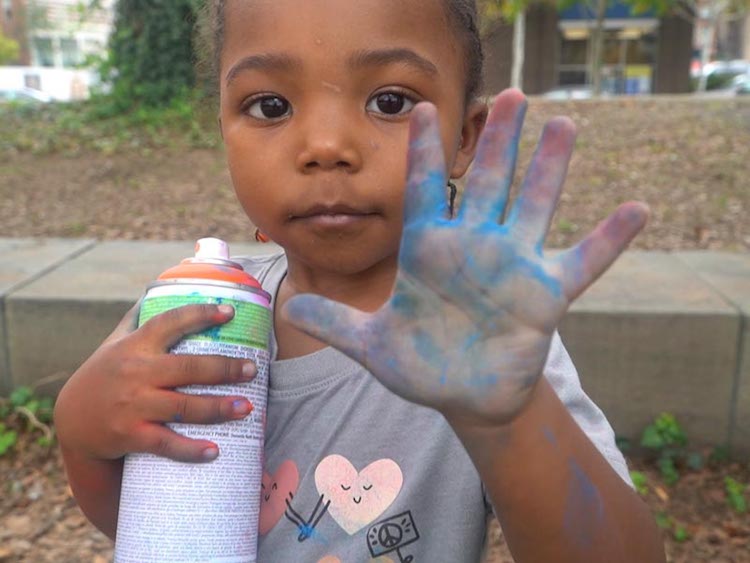
Auberle’s new Love Carries campaign shines a light on the need for Pittsburgh foster families
This article first appeared at NEXTpittsburgh.com, a media partner of Kidsburgh. Sign up here for NEXTpittsburgh’s free newsletter filled with all the latest news about the people driving change in our city and the innovative and cool things happening here. Photo above courtesy of Auberle.
Jeanne Burger and her husband have fostered 16 teenagers during their marriage, and they still consider them to be part of their family. Burger, now foster care manager for a faith-based nonprofit called Auberle, understands that sometimes it is only love that can carry a child through the most difficult time of his or her life: being removed from their biological family.
“All kids would benefit from a home. Every child needs a forever family, somebody they can turn to,” says Burger, who, along with Diane Stanoszek, helps to recruit foster parents for the roughly 1,300 children and teens in Allegheny County needing families.
“You have to have an open heart,” Burger says. “You have to know your primary goal is to reunify the family. … I tell my foster parents that it’s like co-parenting — you always put the child’s interest first. It’s difficult, but the goal is to help the kids, give them a safe place to land while they’re in foster care.”
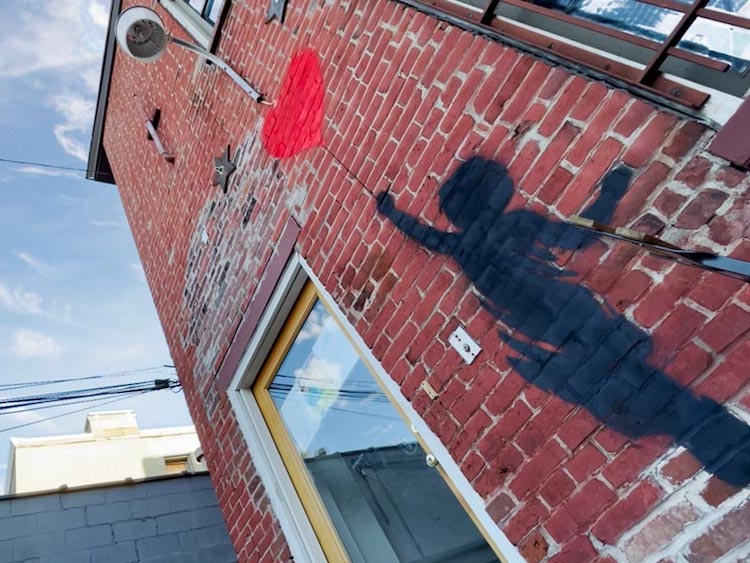
It’s the impetus behind a new awareness campaign — “Love Carries” — to draw attention to the need for foster families. Auberle recruited PMI Digital, muralist Ashley Hodder, and foster families and kids to spend a few days painting murals on buildings and bridges in and around Pittsburgh. Using temporary chalk spray paint, they depicted foster children and parents being lifted with heart-shaped balloons.
“That’s why the ‘Love Carries’ [moniker],” says Burger. “Love carries you through. You have to unconditionally love this child and their first family, and help them through this path.”
The goal was to expand engagement and brand awareness for fostering, says Damien D’Amico, creative director for PMI Digital. “We wanted to come up with something that wasn’t going to get lost in the shuffle. [The street art has] that metaphor of the children being elevated from their situation, whether it be the street or that neighborhood, or whatever, to a place of love.”
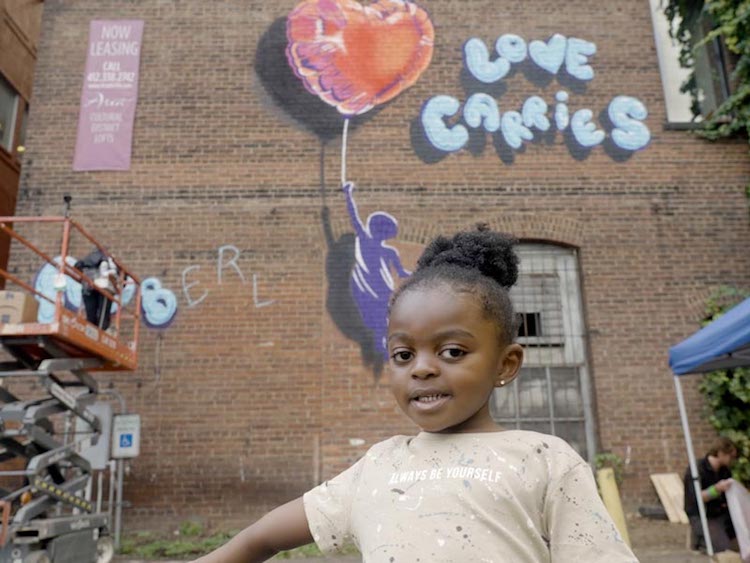
They targeted high-traffic locations, both pedestrian and vehicular, including in neighborhoods with above-average numbers of foster children. Building owners gave permission for the tagging — one of the largest was Aria Lofts in the Cultural District — and City of Pittsburgh leaders have said the murals can stay up for a while. The chalk paint eventually will come off, but it might take time or a good scrubbing.
“It was challenging this idea that foster care doesn’t fit in a box. Getting folks into it through art was a way to do it,” says Pennsylvania’s second lady Gisele Barreto Fetterman, who lent her support to the project. “Love is what makes a household. We wanted to get in the traffic zones of folks who maybe regularly wouldn’t think of [fostering], get them interested: ‘What’s this mural, what does this hashtag mean? Let me look further into this.’”
For Auberle, recruiting foster parents is a 24/7 job, says Burger. There are never enough families, and anyone can be a foster parent: single parents, married couples, same-sex couples.
“We recruit everyone; there is no one we leave out. If you have an extra bedroom, we will meet with you” within 24 to 48 hours, she says. At that first meeting, Burger and Stanoszek explain what’s expected of foster parents — to house, feed and care for a child or children, including their medical and dental appointments. A case manager will be assigned to the family, offering support through calls and visits.
Before someone can be certified to foster, they’ll receive 42 hours of training (and an additional 24 hours if they’re accepting a child with behavioral issues). It can be especially difficult to find homes for teens, Burger says.
Foster parents must meet state requirements, including criminal child abuse and FBI background checks, and medical and tuberculosis tests. Once accepted, they’re paid a per diem of $34 for a child ages 0-12 in traditional care, or $64 for therapeutic foster care; for a child 13 and older, the per diem is $39 for traditional care and $69 for therapeutic care.
Though the primary goal is always reunification, if possible, the Adoption and Safe Families Act of 1997 sets a timeline for the biological parents, says Burger. If a child has been in foster care for 15 of the most recent 22 months of their life, Allegheny County’s Office of Children, Youth and Families can petition in court to change the goal from reunification to permanency, enabling the foster parents (or someone else) to start adoption proceedings.
That can also mean subsidized permanent living conditions, which gives the foster parent legal custodianship, Burger says. It’s an option teens often choose if they don’t want to be adopted, she says.
“We are a trauma-informed agency, which means we don’t look at the behavior of kids — we look at the trauma,” she says. “Behaviors are a way for them to cope with life. We work on healing the trauma. Biological families have lots of traumas, too, and Covid brought a lot of people to financial places they didn’t want to be.”
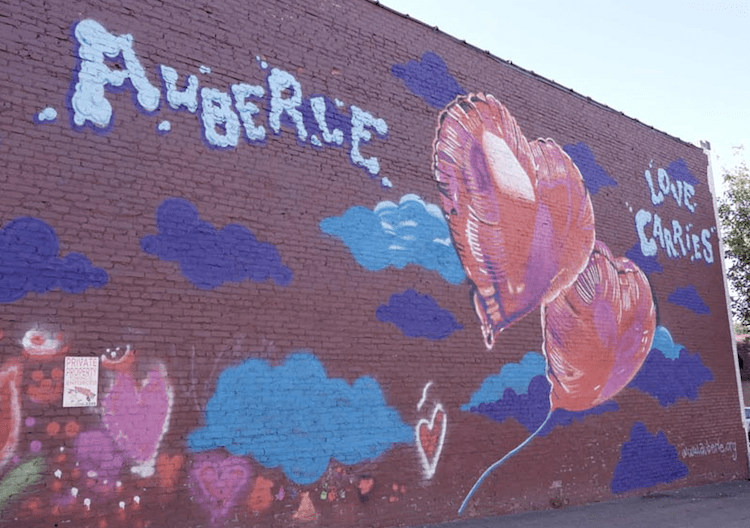
During the pandemic, Auberle began to provide virtual support groups three times a week, instead of just once-monthly meetings, and that extra interaction has continued. There’s also a kids’ club that meets once a month, giving the foster parents a chance to talk with a therapist while the kids engage in activities.
“There’s a national study that says when you first hear about foster care it takes about 18 months before you finally make the phone call,” says Burger. “The majority of foster parents go in it for the right reasons — they just want to help the kids. No parent wants to hurt their kid. The trauma they’ve experienced leaves them with coping skills that aren’t healthy. A support system is very important in life, so we ask our foster families to be part of the biological family’s support system.”
Want to learn more about foster care programming in Allegheny County?
